
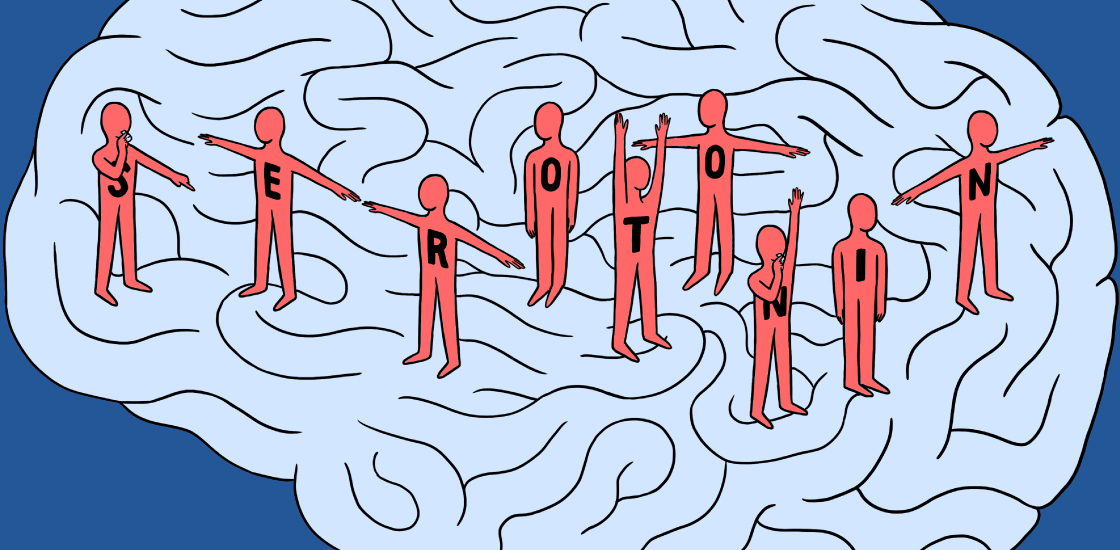
If you've been struggling with mood swings, poor sleep, chronic stress, or low energy, your serotonin levels may be out of balance. Serotonin is a key neurotransmitter that supports emotional well-being, regulates sleep cycles, reduces anxiety, and promotes resilience to stress.
But here’s the good news: you can naturally support serotonin production with targeted nutrients, lifestyle habits, and functional medicine testing to get to the root of the problem.
👉 Click here to schedule a free consult with Dr. J to discuss natural serotonin support tailored to you.

Serotonin (5-hydroxytryptamine or 5-HT) is a chemical messenger primarily found in the brain and digestive tract. It plays a major role in:
Mood and emotional regulation
Sleep and melatonin production
Cognitive function
Stress adaptation
Appetite and digestion
Pain perception
Low serotonin is associated with anxiety, depression, insomnia, sugar cravings, PMS, irritability, and feeling emotionally flat. Since serotonin also converts into melatonin, low levels can sabotage your circadian rhythm and antioxidant defenses.
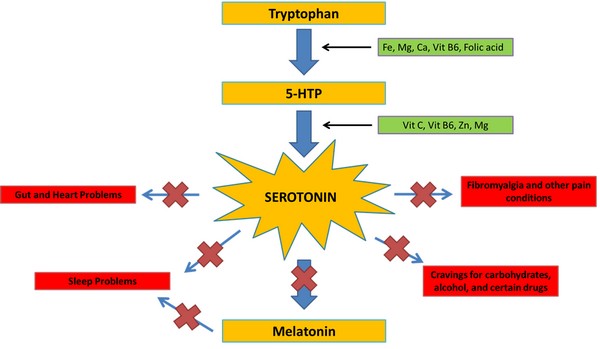
Your body needs specific amino acids and cofactor nutrients to produce serotonin to drive its biochemical pathways. Here's what helps:
A direct precursor to serotonin.
Bypasses the rate-limiting enzyme that blocks tryptophan from converting efficiently.
Often more effective than L-tryptophan supplements.
💊 Suggested Dose: 100–600 mg/day
Required to convert 5-HTP into serotonin.
Deficiency leads to poor neurotransmitter synthesis across the board.
Supports mood, cognition, and hormonal balance.
💊 Dose Range: 10–100 mg/day
Essential for methylation of neurotransmitters.
Improves brain energy, memory, and serotonin function.
A study showed B12 + antidepressants improved outcomes by 20% over medication alone【PubMed: https://pubmed.ncbi.nlm.nih.gov/17224707/】.
💊 Tip: Use the methylated form for better absorption.
Works alongside B12 in methylation pathways.
Supports SAMe production, a key donor in serotonin metabolism.
💊 Use the active form: Methylfolate (L-5-MTHF), not folic acid.
Supports adrenal health and cortisol regulation.
Helps counteract oxidative stress from poor sleep and emotional stress.
💊 Tip: Pair with bioflavonoids or adaptogens for enhanced effect.
Calms the nervous system via GABA regulation.
Low magnesium worsens anxiety, tension, and insomnia.
💊 Best Form: Magnesium glycinate or threonate for brain benefits.
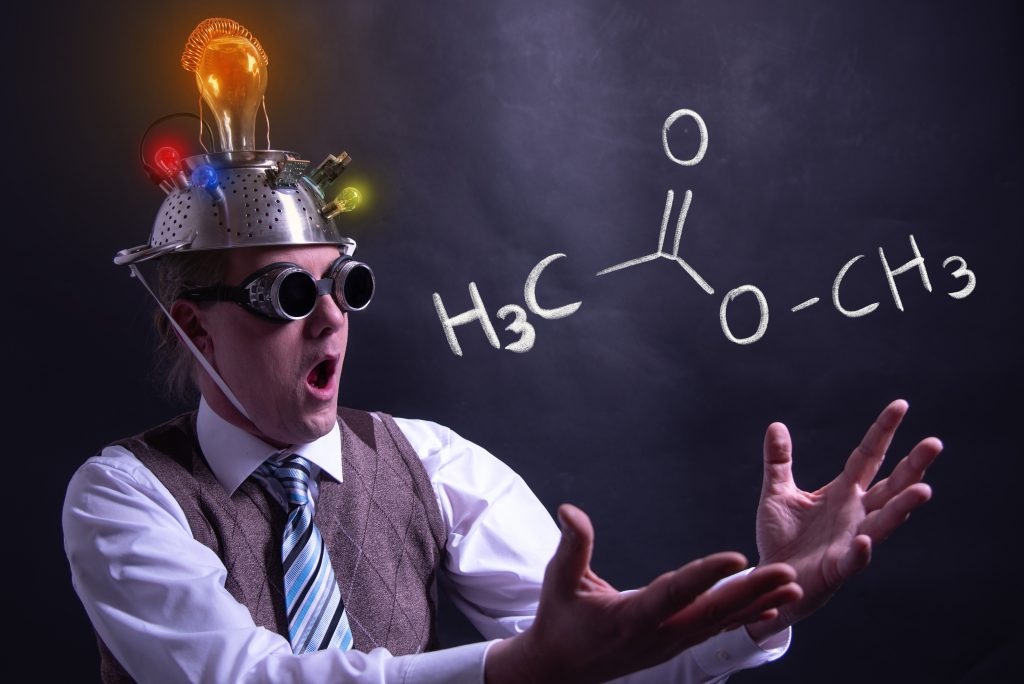
Chronic stress depletes serotonin. Adaptogens help buffer that stress response and promote balance across the hypothalamic-pituitary-adrenal (HPA) axis. Top options include:
Ashwagandha – Calms cortisol, boosts resilience.
Rhodiola rosea – Enhances energy, reduces burnout.
Eleuthero (Siberian ginseng) – Supports adrenal recovery.
Holy Basil – Calms the mind, balances blood sugar.
Passionflower / Valerian – Calming botanicals for deeper sleep.
Kava / CBD – Natural anxiolytics that promote GABA and ease anxious thoughts.
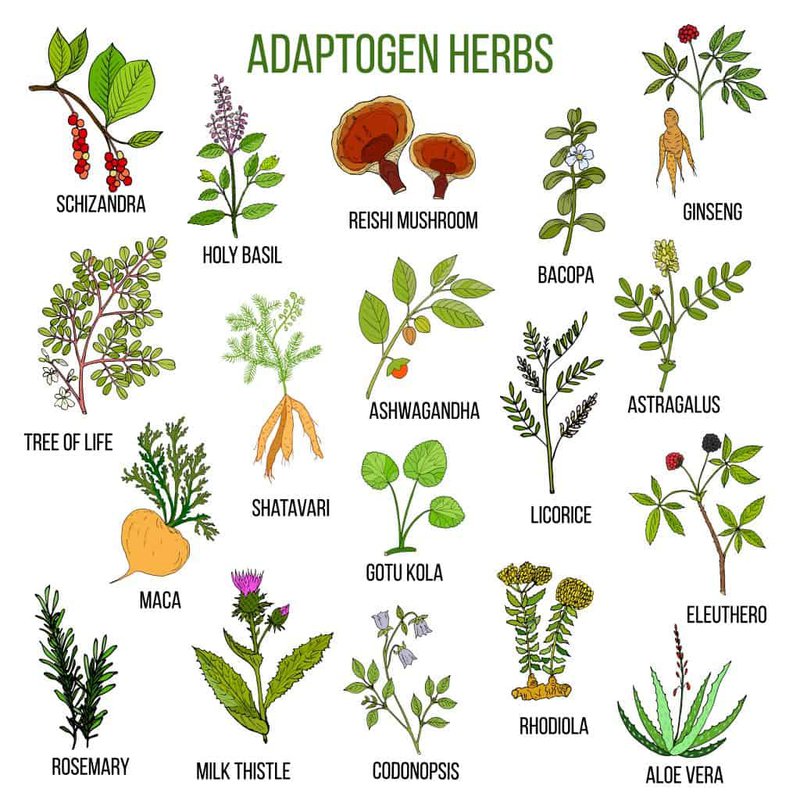
Many people unconsciously crave sugar, carbs, or junk food when they’re stressed or sad. That’s because refined foods can give a quick spike in serotonin. But this is a destructive coping strategy that causes long-term problems like:
Mood crashes
Fatigue
Weight gain
Sleep disruption
Inflammation
Instead, aim for constructive vehicles—strategies that support long-term healing. That includes high-quality protein, healthy fats, blood sugar balance, and targeted supplementation.

To truly get to the root of low mood, poor sleep, or anxious thinking, lab testing can offer valuable insights. Here’s how we assess serotonin and related neurotransmitters in the clinic:
Evaluates metabolites like:
5-HIAA – Marker for serotonin breakdown.
Vanilmandelate (VMA) – Marker for adrenaline.
Homovanillate (HVA) – Marker for dopamine.
Micronutrient testing for B vitamin and magnesium levels.
Cortisol testing (DUTCH or salivary) to evaluate adrenal health.
GI testing – 90%+ of serotonin is produced in the gut! Infections, leaky gut, or dysbiosis can drastically impact levels.
🔬 Want to test your neurotransmitter status?
👉 Schedule a consult and testing strategy here
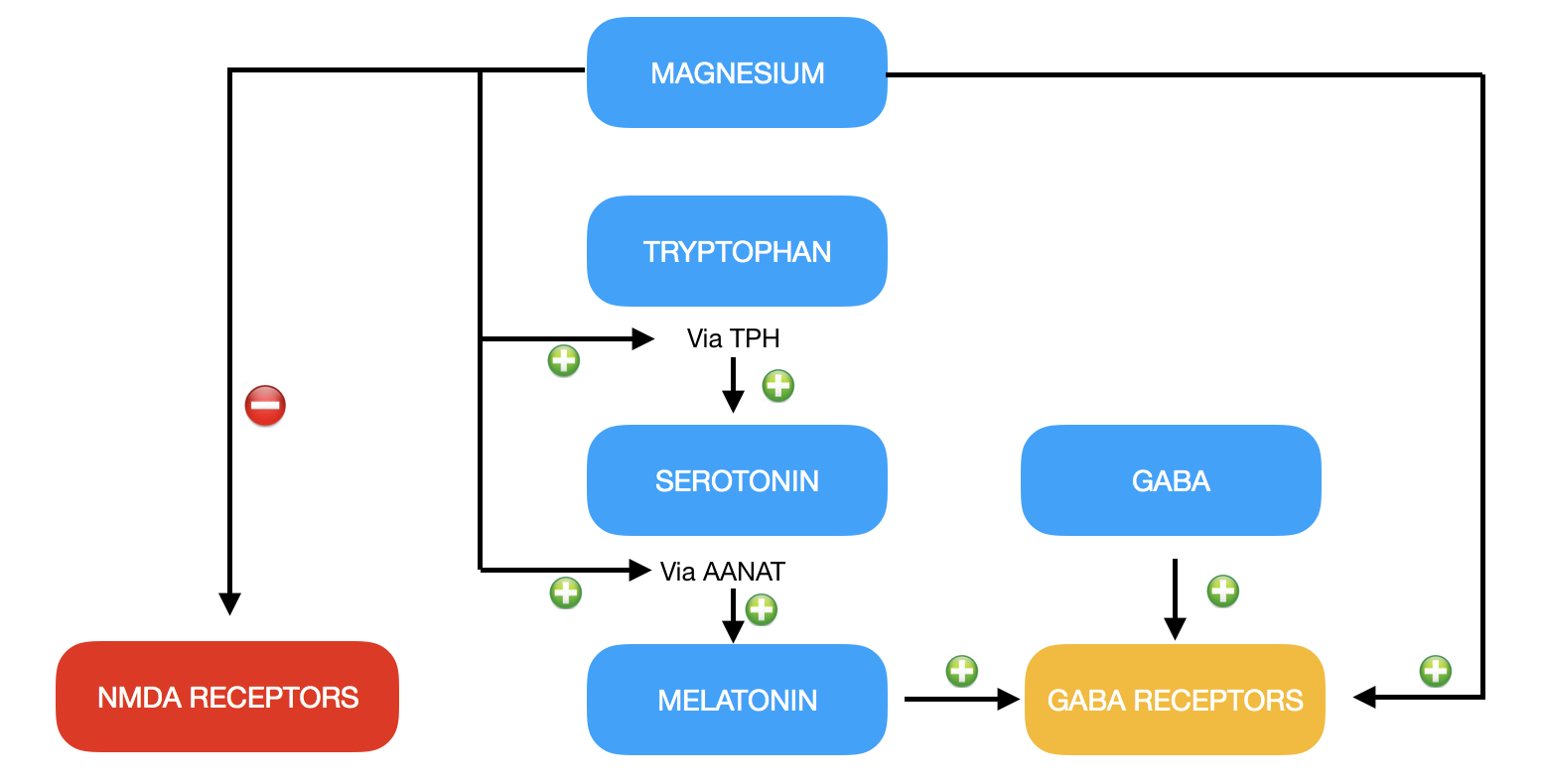
At Just In Health, Dr. J recommends targeted formulas designed to support healthy serotonin and dopamine balance:
Serotonin Replete – Includes 5-HTP and B6 in optimal therapeutic doses.
Brain Replete – Balanced 10:1 blend of dopamine and serotonin support with cofactors.
Dopa Replete & Dopa Replete Plus – For those with more dopamine-related fatigue or focus issues. Includes tyrosine, L-dopa (from mucuna), EGCG, and more.
These professional-grade supplements are only recommended after a full clinical review.
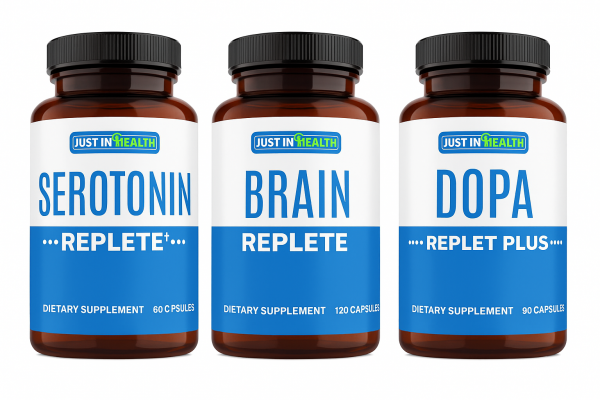
✔ Prioritize 5-HTP, B6, B12, folate, magnesium, and vitamin C
✔ Use adaptogens to balance stress and protect serotonin
✔ Avoid refined carbs and emotional eating triggers
✔ Eat clean, digest well, sleep deeply
✔ Test your neurotransmitter status for personalized insights
Low serotonin could be the missing link behind your mood swings, poor sleep, or anxiety—and it's often related to gut, adrenal, or methylation imbalances that go undiagnosed.
Ready to find the root cause and start feeling like yourself again?
👉 Click here to schedule your free consult with Dr. Justin Marchegiani
Functional lab testing. Targeted solutions. Real results.
5-HTP and Depression Support
A review of 5-HTP’s role in improving mood and supporting serotonin pathways.
👉 https://pubmed.ncbi.nlm.nih.gov/18661963
Vitamin B6 and Neurotransmitter Synthesis
Vitamin B6 is essential for serotonin and dopamine synthesis.
👉 https://pubmed.ncbi.nlm.nih.gov/20329590
B12 and Folate in Depression
Effect of vitamin B12 and folate supplementation on depressive symptoms.
👉 https://pubmed.ncbi.nlm.nih.gov/17224707
Magnesium and Anxiety Reduction
Magnesium's role in managing anxiety and mood regulation.
👉 https://pubmed.ncbi.nlm.nih.gov/29031739
Adaptogens and Stress Response
Rhodiola and Ashwagandha for adrenal modulation and HPA axis support.
👉 https://pubmed.ncbi.nlm.nih.gov/23439798
👉 https://pubmed.ncbi.nlm.nih.gov/31517876
Tryptophan Depletion & Mood Effects
Acute tryptophan depletion impairs mood in healthy individuals.
👉 https://pubmed.ncbi.nlm.nih.gov/15588759
Organic Acid Testing for Neurotransmitter Metabolism
Urinary organic acids reveal neurotransmitter imbalances.
👉 https://pubmed.ncbi.nlm.nih.gov/31927615
Emotional Eating and Serotonin Dysregulation
Link between carbohydrate craving and serotonin pathways.
👉 https://pubmed.ncbi.nlm.nih.gov/17344487
Melatonin as a Serotonin Derivative
Melatonin is synthesized from serotonin and plays a role in sleep and antioxidant defense.
👉 https://pubmed.ncbi.nlm.nih.gov/22245773
Gut Health and Serotonin Production
Over 90% of serotonin is made in the gut – microbial balance matters.
👉 https://pubmed.ncbi.nlm.nih.gov/25882912
====================
IN CASE YOU MISSED IT: